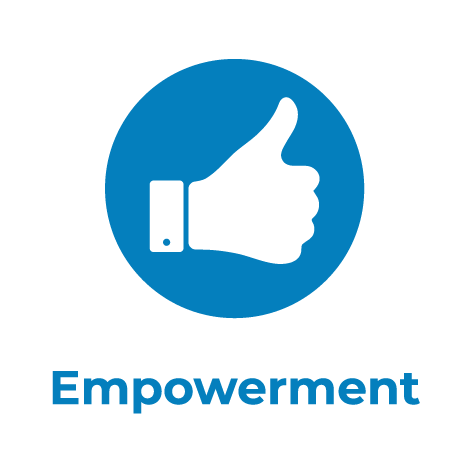German learning
Who offers German courses or learning materials?
In Germany, two ministries are responsible for integration measures.

The Federal Ministry of the Interior and Community (BMI) is commissioned with regulating measures for integration and general language support up to level B1 that are coordinated by the Federafor Migration and Refugees (BAMF), a federal authority, a part of the BMI.
The Federal Ministry of Labour and Social Affairs (BMAS) promotes professional-working language acquisition.
The language courses are based on the Common European Framework of Reference for Languages (CEFR). This is the European Union’s standardized system for categorizing the levels of a foreign language.
It considers how you read and understand a text, how you understand the language you hear and how you write and speak the language.
There are the following six levels:
Language elementary
Language independent
Language proficiency
In addition to state courses, free courses are also offered by various private providers, non-profit organizations and commercial companies.
You can also attend German courses at language schools and adult education centers.
You can also learn German online anywhere using free apps (not exhaustive) such as Ankommen-App (Federal Office for Migration and Refugees), Deutschtrainer (Goethe-Institut) and Stadt der Wörter (Goethe-Institut).
What can I do to learn German?
As part of an integration course run by the Federal Office for Migration and Refugees (BAMF), you will learn German up to language level B1 and also receive information about German culture [ – link to our separate entry]. One lesson usually costs 2.29 euros (cost contribution). For example, a general integration course with 700 lessons costs 1,603 euros.
In addition, as part of the vocational language courses of the Federal Ministry of Labor and Social Affairs (BMAS), you have the opportunity to attend basic courses in which you learn German for everyday working life. There are also job-related language courses in which you will also learn technical terms from the sector in which you are/will be employed.
Even if you have already attended an integration course but have not reached the goal of independent language use B1, you can attend a special course to better prepare you.
The professional language course has the advantage for you that it can be completed free of charge via the Federal Employment Agency so that you receive a certificate with your language level. Even if you are already working, you can take part in a professional language course. If your taxable annual income is over €20,000, you pay a fee of €2.56 per teaching unit (45 minutes). This amounts to a total of €1,024 for a course with 400 teaching units. The cost contribution can also be paid by your employer.
If you successfully complete the vocational language course, half of the costs can be reimbursed. You must submit an application for this: https://www.bamf.de/SharedDocs/Anlagen/DE/Integration/Berufsbezsprachf-ESF-BAMF/BSK-Vordrucke-Formulare/antrag-rueckerstattung-kosten.html?nn=284044
Other options for learning and practicing German:
Why do you need German language skills?
Language skills quite literally open doors for new opportunities.
Investing in your language skills is the best thing you can do for your career. Second language-fluency can help you secure a respected job. It also increases your earning potential. It is no secret that being fluent in the local language can help you get ahead in your career. Making the effort to master German can be the stepping stone that you need to make the leap up from junior to management, or even to the executive level. Businesses see the correlation between bilingual or multilingual employees and growth in international markets, so they are willing to invest in acquiring staff with strong language skills.
Being able to converse directly prevents potentially costly misunderstandings and improves accuracy. It also saves you translation costs. Moreover, it makes you a more effective communicator. Indeed, everything comes down to effective communication.
Proficiency in a second language makes networking more effective, allows you to make the most of opportunities and begin potentially profitable conversations – both for you and for your career.
Overall, mastering the German language will make your start in Germany easier and will improve your chances of successful social integration and participation in society. German language-fluency will help you to settle in more quickly in Germany, to make new personal and professional contacts and especially to be able to live independently and self-determinately in Germany. Speaking the language of the country enables you to communicate with its people and to explore its culture. This makes everyday life easier. It is important to understand German for many legal matters such as dealing with the foreigner, labour and social authorities or understanding contracts that you sign (employment contract, rental agreement, etc.).
How can I register?
To take part in a BAMF integration course, submit an application there: https://www.bamf.de/SharedDocs/Anlagen/DE/Integration/Integrationskurse/Kursteilnehmer/AntraegeAlle/630-007_antrag-zulassung-integrationskurs-ausl_pdf.pdf?__blob=publicationFile&v=26
To take part in a BMAS vocational language course, please get in touch with a contact person at your Federal Employment Agency who is also responsible for your placement.
Employed persons, trainees or persons undergoing a professional recognition procedure can contact the Federal Office for Migration and Refugees by e-mail.
To do this, send an e-mail to the office responsible for your federal state. In Bavaria, this is the BAMF Nuremberg, e-mail: deufoe.nuernberg@bamf.bund.de
Where can you find German courses and learning materials?
There are many online platforms where you can find free learning videos and other materials for learning German. Some popular options are:
When should you start learning German?
It is advisable to start learning German as early as possible if you are planning to live and work in Germany.
The earlier you start, the more time you will have to learn the German language and familiarize yourself with German culture and social values.
If you are already living in Germany, you should start learning German right away to improve your communication skills and to feel more at home in your new environment.

Here are some helpful links that we have listed for you:
https://www.klett-sprachen.de/downloads/einstufungstests/einstufungstests-daf/c-638
https://www.berlitz.com/de-de/about/kostenloser-einstufungstest